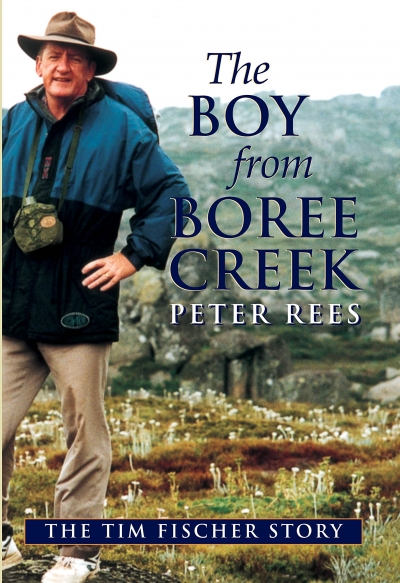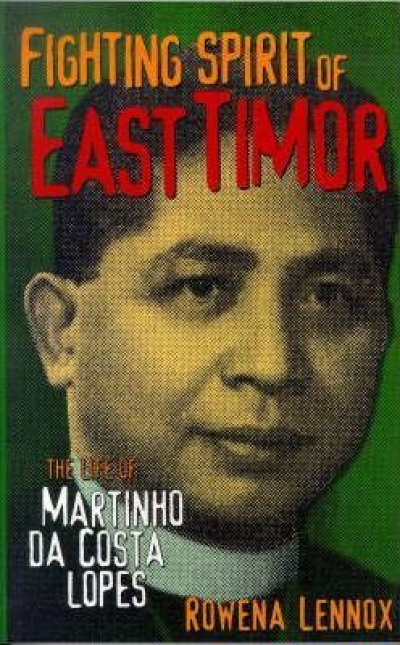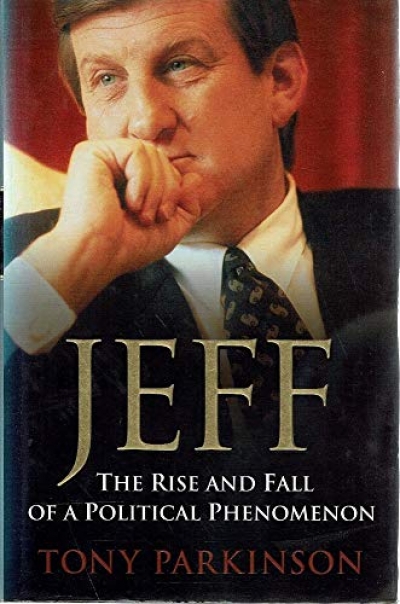Biography
In February 1996, as Australians prepared to elect the Howard government for the first time, Paul Keating addressed a trade union rally at the Melbourne Town Hall. Keating, knowing but not accepting that he would soon be ejected from the prime ministership, ran through a commentary on the leading figures in the Liberal–National coalition. Keating’s message was that these people were second-rate and would disgrace Australia if they won power. In reference to the National Party leader, Tim Fischer, Keating attracted a big laugh when he averred: ‘You know what they say – no sense, no feeling.’ Keating, who had previously described Fischer as ‘basically illiterate’, regarded his opponent as a joke. He was not alone. There were worries about whether Fischer would be up to the task of holding down a senior ministry, especially his chosen portfolio of trade, and of serving as acting prime minister when John Howard was ill or out of the country.
... (read more)Soldier Boy: The True Story of Jim Martin the Youngest Anzac by Anthony Hill
Anthony Hill begins his biography of Jim Martin by describing Martin’s death. Beginning the story of a person’s life by going straight to the end is unusual but wholly appropriate in this case because Jim Martin’s fame lies solely in the fact that his death at the age of fourteen, at Gallipoli, makes him the youngest known Australian soldier ever to die in a war.
... (read more)Amor Mundi: True stories – Days of bombardment and martial law in Belgrade by Dusan Velickovic
This excellently produced little paperback from a new Australian publisher, Common Ground Publishing, comes with a story behind it. Dusan Velickovic may be remembered by some Australians; he came to this country for several months back in the mid-1980s under a Literature Board Familiarisation scheme, and on his return to Belgrade he did much to publicise Australian writing. Frank Moorhouse, B. Wongar, Robert Drewe and myself were published in translation in the then Yugoslavia as a result of his promotion, and there were probably others. Then, in the late 1990s, silence fell.
... (read more)A Witness to History: The life and times of Robert Arthur Broinowski by Richard Broinowski
Since the Federal Parliament moved to the house on the hill, the rose garden on the Senate side of the Old Parliament House has been neglected and uncared for. Escapism, from parliament, from Canberra, from the intensity and claustrophobia of being locked up in a remote building, has always been a secret ambition of most politicians during parliamentary sittings. The rose garden used to be a beautiful and tranquil place to enjoy a reflective half-hour. On special days, like the opening of parliament, a military band would play in a marquee, and politicians, parliamentary staff and invited guests would stroll on the lawns, enjoying the music, an atmosphere of easy-going irrelevance, and the roses. It was like a scene from the last days of the Raj, filmed by Bertolucci.
... (read more)After a three-month journey to Madagascar by steam-ship, the first thing to greet the newly married missionaries Thomas and Elizabeth Rowlands were fields of wet sugar cane. Brightly painted wooden cottages surrounded the harbour; former slaves and Arab, Indian, and Chinese traders filled the streets. ‘Rain fell heavily, but covers of rofia cloth, which swelled and thickened in the wet kept the travellers dry.’ Their granddaughter, Joan Rowlands, describes their inland journey in Voluntary Exiles. Crossing crocodile-infested rivers, bearers held the Rowlands aloft, ‘shouting and beating [the waters] with branches and poles to ward off attack’.
... (read more)Teresa Petersen’s study of Christina Stead’s fiction is littered with startling assertions about Stead’s sex life. Petersen suggests that Stead did not actually love her life partner, Bill Blake, in a sexual sense and that a yearning for fatherly love drove her forty-year relationship with him. She maintains that Stead struggled with her own lesbian desires throughout her life, and, unable to come to terms with her homosexuality, recreated herself in her fictional characters. While Petersen stops short of saying that Stead engaged in lesbian relationships, she contends that Stead’s novels are infused with lesbian eroticism in a displacement of Stead’s own desires onto her women characters. If Stead’s life with Bill was so happy, as Stead consistently maintained, why, Petersen asks, didn’t she portray positive heterosexual relationships between men and women?
... (read more)The Fighting Spirit of East Timor: The life of Martinho da Costa Lopes by Rowena Lennox
As bookshops and bestseller lists fill up with new biographies about celebrities, criminals, tycoons, and sporting heroes, Pluto Press has come out with the story of a small, fat, generally unheard-of priest, Monsignor Martinho da Costa Lopes. Unlike the mega-books it fails completely to surprise us with the sexual preferences of the famous or inform us how to make a million dollars over lunch. Its subject, Dom Martinho, is free of such ordeals as poorly executed facelifts, nosy tax officers or greedy agents. His main concerns are cruder – how to stay alive and to help others stay alive when faced with the brutality of an oppressive, harsh regime.
... (read more)Jeff: The rise and fall of a political phenomenon by Tony Parkinson
Political biographies are renowned as being notoriously difficult to write. Given the peculiar role of authorisation this is not surprising. The ‘authorisation’ – the act of writing – of a political biography is diminished and crowded out by a subject who not only defines the work’s content, but can literally refuse to authorise the text. In this context, Tony Parkinson’s biography of Jeff Kennett, Jeff: The rise and fall of a political phenomenon, runs up against a subject who is particularly adept at controlling the manufacture of his personal and public self. Parkinson’s biography is unauthorised, but has survived its subject’s scrutiny.
... (read more)On a day which began with Eve finding her children ‘half naked and purple with cold … crying on their bed’, she was visited by a detective. He was there to ask questions because ‘La Gauss’, the old woman who let rooms to the family, had accused Eve’s husband of stealing. Langley let him know that she wrote everything down, including all of La Gauss’s lies, and that she would one day make a book of it. He is surprised that she could write of her life in these parts, and waves ‘his hand toward the ferns and gorse on the hill outside’. Eve replied, ‘The tragedy of life down here would amaze you. I have everything down sympathetically, and someday it shall be published.’
... (read more)The Queen of Bohemia by Dulcie Deamer & An Incidental Memoir by Robin Dalton
It’s interesting how many comic autobiographers are theatrical, like Barry Humphries, Clive James, Hal Porter, and Robin Eakin, whose Aunts up the Cross (1965) is a minor masterpiece and very funny. Eakin’s belated follow-up, An Incidental Memoir, published under her married name of Dalton, compares interestingly with Dulcie Deamer’s posthumously published The Queen of Bohemia.
... (read more)










